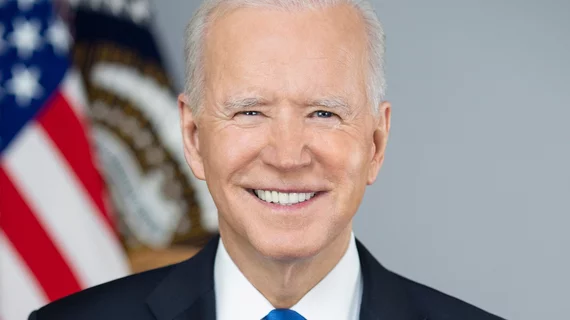Radiology stakeholders want White House intervention to prevent ‘disastrous’ payment changes in 2022
Stakeholders in radiology and radiation oncology are urging the White House to intervene as the professions face “disastrous” payment changes looming in 2022.
They’re particularly concerned about $300 million in Medicare cuts tied to the controversial Radiation Oncology Model—a mandatory bundled payment program seeking to curb cancer costs across 16 disease types. President Joe Biden has helped lead the fight against the disease. But these and other Medicare changes on tap threaten to halt that progress, the American College of Radiology and others said Sept. 24.
“Radiation oncology is poised to meaningfully contribute to your goals of ending cancer as we know it and advancing health equity,” ACR, the American Society for Radiation Oncology, Siemens Healthineers and many more wrote to the president. “However, these draconian cuts will devastate a critical component of our nation’s cancer care delivery system, reducing access to high quality care close to patient’s homes.”
About half of the $300 million stems from the RO Model, while the balance relates to increased wages for clinical labor staffers. ASTRO estimated last month that rates for certain breast and prostate cancer treatments would fall 13%, while advanced lung cancer offerings are expected to dip 22%. Advocates predicted practice closures if the feds fail to fix the Medicare Physician Fee Schedule.
“Before the MPFS and RO Model cuts are finalized, please intervene to stabilize payments for radiation oncology services and preserve access to high quality care for patients by directing CMS to reduce the RO Model’s punitive discount factor payment cuts to 3% and hold harmless radiation oncology from the proposed cuts under the Physician Fee Schedule,” ACR, ASTRO and 22 other groups wrote.

